Stott-Bediako Forum Press Release
INFEMIT’s 2022 Stott-Bediako Forum had often been referred to as a “journey.” This turned out to be an accurate metaphor in many senses. As we reflect, it is our joy to share with you about the companions who joined us; the joys and challenges we faced; the unexpected surprises and hospitality on the way; and the unfinished path that we continue to explore.
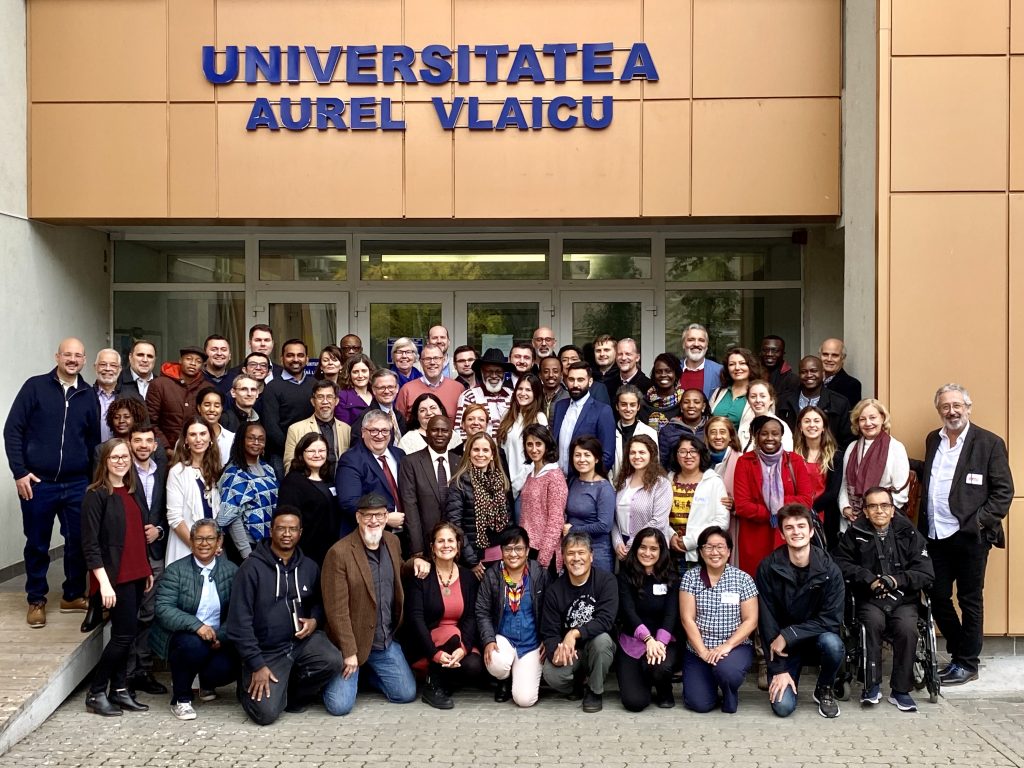
The Companions who Joined
The Stott-Bediako Forum on Jesus and Empire: Christian Witness in the Context of Power surpassed INFEMIT’s previous events in its size, diversity, and scope. For the first time, participants joined simultaneously in-person and online, with connections spanning the globe. Online facilitators, Sesihle Manzini (South Africa) and Alejandra Ibarra (Mexico), brokered the connection between online participants and the live plenary sessions in Romania, and they hosted a variety of independent conversations for those online. They also kept these conversations going long after the guests in Romania went to bed, to make sure that sessions were also available and accessible to participants in the Western Hemisphere.
Those registered for the forum numbered 155 in total; from 43 countries in every region of the world. Their questions and reflections, in small group discussions, breakouts, around dinner tables, and during Question & Answer times, were an essential part of the collective learning and discernment around forum themes. We are especially grateful to the students from the University of Arad and the young leaders gathered by Tearfund who were not afraid to ask hard questions and point out the gaps that urgently need to be addressed if we are to walk responsibly alongside the next generations of scholar-practitioners. We simultaneously celebrate the richness in the diversity of perspectives offered by women and men from different ages, backgrounds, and parts of the world – and lament the ways in which this gathering falls short of reflecting the diverse body of Christ. Due to government restrictions, unequal access to resources, language barriers, and our own limitations, we continue to recognize gaping holes at our “meeting table.” This, too, is evidence of empire in our world today.
We also celebrate the incredible creativity, thoughtfulness, and provocation brought by the group of contributors, both online and in person. We celebrate each of them and their work, by name:
- Al Tizon (United States): Mammon and Empire: Confronting the Root of All Evil
- Amanda Kaminski (United States): Spiritual Practices for Discerning Prophetic Action in the Context of Empire: A Trauma-Informed Reading of the (Dis)Obedience of Esther
- Ana Petrache (Romania, Italy): The hope for the eschatological imperium as counter-politics
- Carolina Pineda (Colombia): Is it good or bad? A theological approach to christian thinking and behavior toward politics and issues of public concern
- Ciprian Gheorghe-Luca (Romania): Empowered Citizens of Heaven, Witnessing Neighbors on Earth: Rethinking Citizenship in Light of the Pentecost(al) Narrative
- Daniel Oprean (Romania): Discipleship between Cesar and Christ: Reading Mark 8:27-10:45 in the Context of Power
- Daniela Meisaros (Romania): Christian witness in the public space: a case study of Romanian Pentecostal Christians
- Eugen Porcilescu (Romania): Penticostalismul românesc după 100 de ani, încotro? Orientarea teologiei penticostale române spre noua paradigmă a teologiei penticostale globale
- Greg Leffel (United States): Empire of Confusion
- H. Fernando Bullon: (Peru, Costa Rica): Power and [Political] Economics: Reflections from Latin America
- Jim Padilla DeBorst (United States, Costa Rica): Wealth Inequality: Redistribution within the Nation: Market or State; Jubilee by Kingdom Ekklesia throughout the Empire
- Jocabed Solano (Panama): Songs of Liberation
- Joel D. Aguilar Ramírez (Guatemala): Non-Violent Visions of God: Non-violent theologizing as resistance to empire
- Julijana Mladenovska-Tešija (Croatia, Macedonia): Osijek and Vukovar: Experience from the Margins
- Kabiro wa Gatumu (Kenya): Jesus Vis-à-vis the Power and Peace of Empire
- Kosta Milkov (Macedonia): Theological Interpretation of Macedonian Contemporary Painters
- Marcel Măcelaru (Romania, Croatia): Subverting the Powers, Engaging Powerlessness: The Bible on Socio-Political Imaginaries
- Martin Accad (Lebanon): Jesus and Revolution: Leading a Change Movement and Reinvesting the Public Space
- Mary Thamari (Kenya): Jesus and women: Lessons on subverting patriarchal power in private and public spheres
- Melody Wachsmuth (Croatia): The Unexpected Messenger
- Nestor Ravilas (Philippines): Empire of Profit and the Imagined Community of Jesus: the Saga of Two Powers
- Nikki Toyama-Szeto and David de Leon (United States): Communities in Context— Insights from Marginalized Communities about Christian Witness in the Public Sphere
- Nina Balmaceda (Peru, United States): The Manipulation of Religious Sentiment in contexts of party linkage decay in the Americas
- Ruth Padilla DeBorst (Costa Rica, United States): Confluence and Clash: Reformed and Anabaptist Positions Regarding Power within the Early Fraternidad Teológica Latinoamericana
- Teofil Stanciu (Romania): The Public Presence as Christian Virtue
- Tim Hartman (United States): A Theology of “Nondominating Power”: Kwame Bediako on Politics
- Tony Deik (Palestine, Bolivia): Socio-Economic Justice in Earliest Christianity: A Fresh Reading of Acts 2:44-45 and 4:32-35 with Graeco-Roman Philosophy and Greek Deuteronomy
- Zac Niringiye (Uganda): Christianity as a Narrative of the Deception of Empire: Whither the promise of justice and love, held out in the Gospel of Jesus of Nazareth?
Many of the presentations were prepared in advance of the forum so that recordings could be used online. These have been made available on INFEMIT’s YouTube channel. We welcome you to watch and use them as resources within your own faith or learning community!
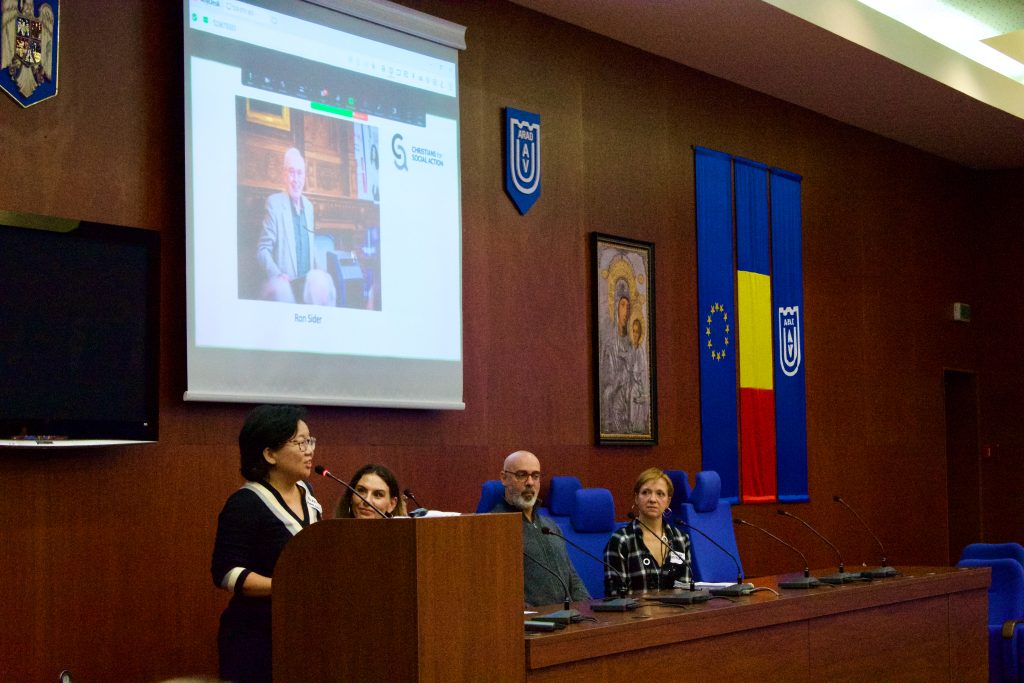
In the photo: Nikki Toyama-Szeto, Amanda Kaminski, Martin Accad, and Julijana Tesija-Mladenovska
The Joys and Challenges Faced
One of the greatest joys discovered by participants who joined this year’s forum was the sensation of having found a community – new friends who share and understand their wrestling and yearning. For many, it was liberating and inspiring to connect what they saw and experienced in their own contexts to similar phenomena occurring in other parts of the world and also realize that they are not alone. We were all connected by our profound desire to see our churches living out radical alternatives to empire, and we were energized to hear about specific places and ways in which this is already happening. The encounter left us eager to explore further, to continue relationships and dialogue in the spirit in which we had embarked.
We were also challenged by incisive questions: How has empire permeated the Church itself and embedded itself in our understanding and practice of our faith? Have we identified it in the language we use? Through what mechanisms does empire continue to wield its power and orchestrate life on earth? How might we defy empire in the economic, religious, political, and cultural systems in which we are enmeshed? While we may have gained insight and ideas with which to delve into these questions more fully, we certainly acknowledge that there is more work to be done if the Church is to faithfully witness to the Gospel in our contemporary world.
The Unexpected Surprises and Hospitality on the Way
In an endeavor as large and ambitious as this Forum was, there were certain to be surprises along the way! We are very grateful for the grace and patience extended by participants in unforeseen situations, such as the technical issues experienced by those online and the shifts in location and timing that affected those in person. However, we also want to acknowledge that it is often by being open to the unexpected that we receive surprising blessings! In the case of this year’s forum, some last-minute challenges meant that participants had to be bussed to-and-from meals, lodging, and the conference, which were all in different locations! Yet in those moments, we got to know one another better, as we sat in pairs for 20-30 minutes at a time between sessions. We also got to receive the joyful service and care of our local hosts, who embraced us with their welcome and hospitality.
Much can be said about the meaningful relationship between “host” and “guest” on a journey like this one. The “Aurel Vlaicu” University of Arad in Romania, with the help and support of local volunteers and churches, organized a generous and elaborate reception for this year’s Stott-Bediako Forum. For INFEMIT and the Stott-Bediako Forum participants, it is only thanks to their incredible work that we were able to host a hybrid event that was accessible and affordable. It was no small task to figure out how to host over 60 international guests in Arad, Romania, but it was a great honor and privilege to gather in this context: A context in which global events do not usually occur. A region whose people’s deep thirst for practical, holistic theology has propelled one of the fastest growing theological education programs in Europe (perhaps in the world) which is modeled after the Faith and Life program offered by INFEMIT through CETI (the Community of Interdisciplinary Theological Studies). A place in which, precisely during our visit, the local Pentecostal Church celebrated 100 years! And the university that fostered, fed, and now carries on the vision of our dear friend, Corneliu Constantineanu (1967-2021). We are immensely grateful.
Likewise, as guests, we were given an incredible opportunity to enrich and bless those who welcomed us. INFEMIT models a way of doing theology that is refreshing and surprising, and so it was for the students, faculty, and church members that joined us during the forum – and for others across the country who heard the news about this unique event! We are committed to a theology that is done in dialogue through friendship, a posture that is open and humble enough to hold together diverse and even divergent perspectives. We believe theology emerges from everyday life in particular contexts. And we acknowledge the need to prioritize those marginalized contexts whose voices have not often been heard. Thus, our gathering and exchange must reflect the diversity of the Church, south-to-south, between generations, and among practitioners and scholars. In this way, INFEMIT sought to encourage our hosts through our unusual forum, inspiring and inviting them to continue to seek these values in their own faith communities.
The Unfinished Path
As the forum concluded, there was a shared sense that the journey had only just begun. We had done extensive, though certainly not exhaustive work on critically exposing empire in our current realities and exploring approaches to power in the accounts of Jesus, the early Church, and Christians in particular times and places. Meanwhile, new questions had emerged! What might we propose as alternative ways of living, especially in today’s rapidly changing world? What spiritual practices might nourish radical and faithful Christian witness? How do we re-envision being God’s people – the Church – in light of this?
The way forward for each person and for INFEMIT, collectively, is a dual task: we must continue to ask and explore our questions, but we also return to the particular places and communities in which we struggle to find and live into our own answers. For the first, INFEMIT is committed to providing spaces where ongoing dialogue can occur as well as resources for continued reflection. Concretely, we will be organizing more Question and Answer sessions on some of the forum topics in the year ahead, and we will curate a wide array of resources from this forum and other sources for people to use. For the second, we also hope to grow as a community whose fellowship can encourage and sustain each of us as we make our journey.
If you or someone you know would like to connect more with INFEMIT, the first step is to sign up to “belong” (especially if you are interested in joining a circle of fellowship) and subscribe to our newsletter to receive updates about resources and events from us and other affiliated communities across the world.
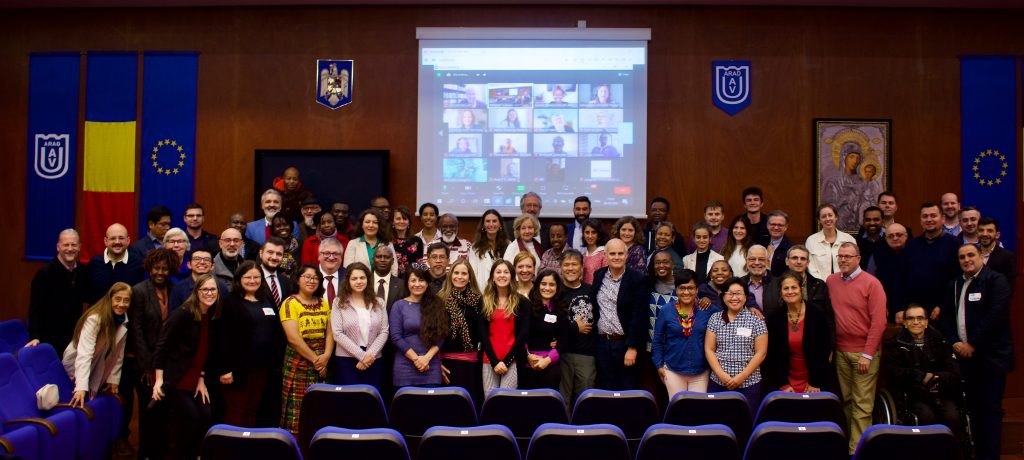
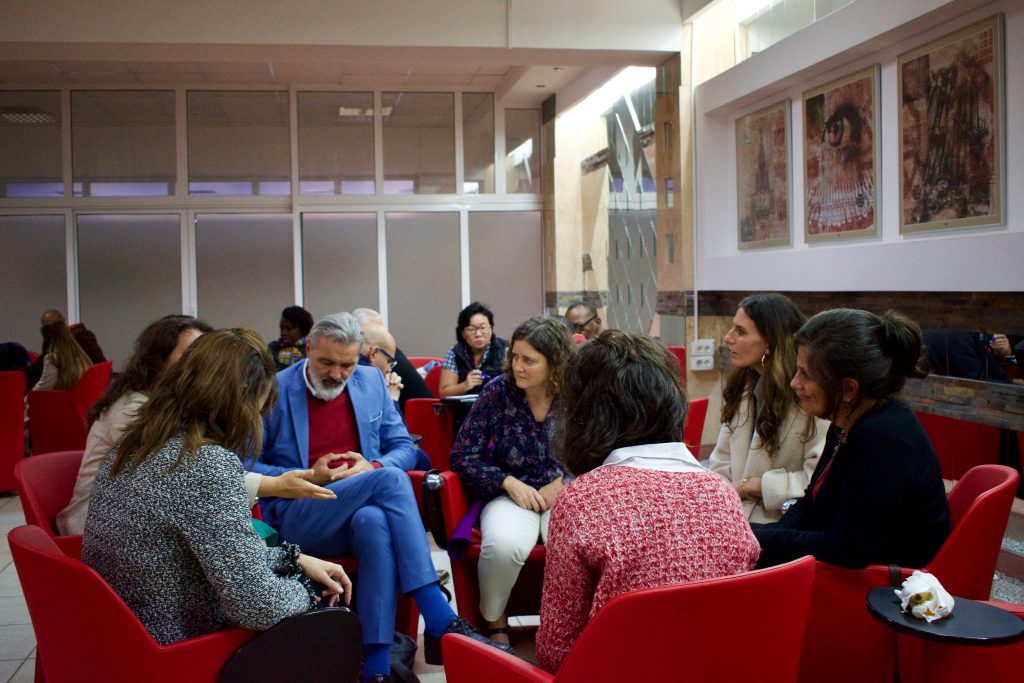
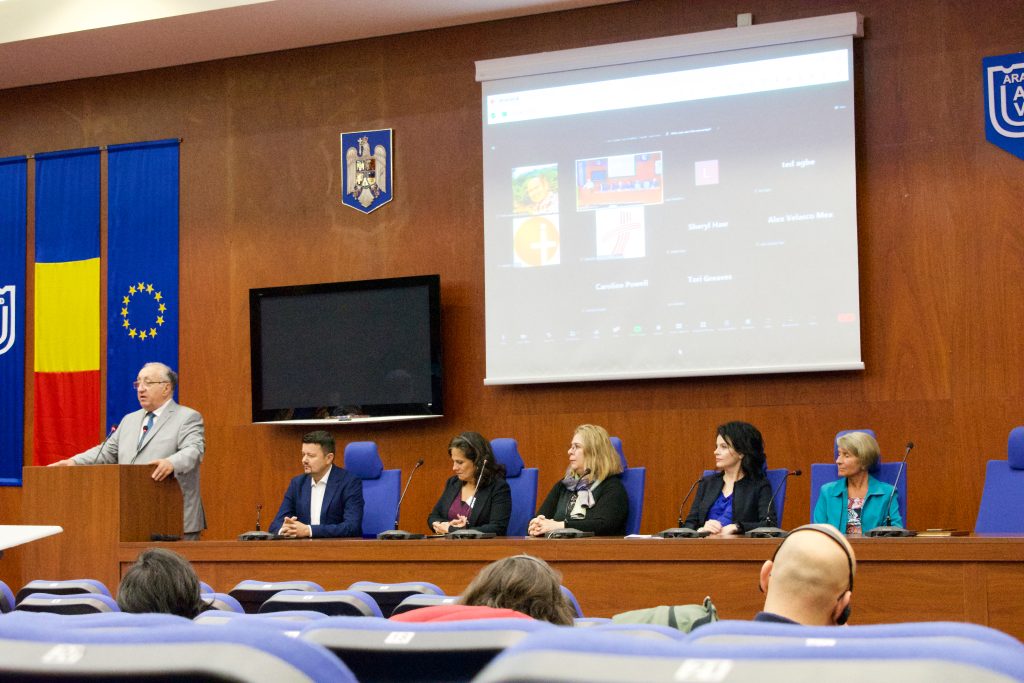
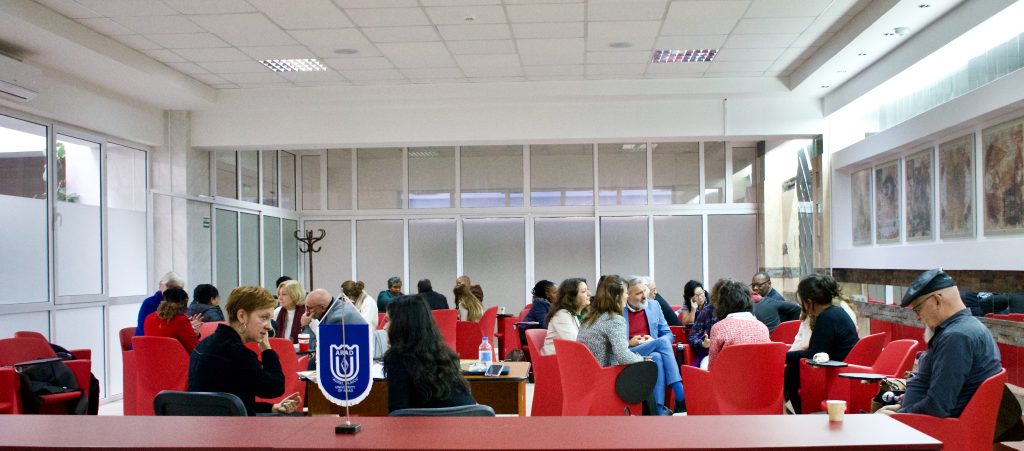
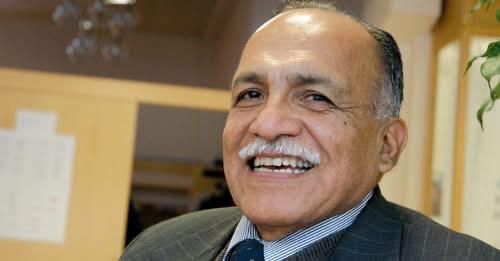
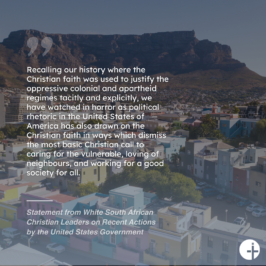
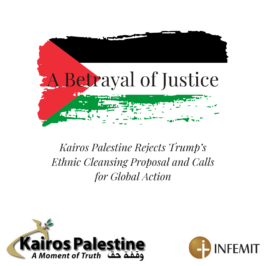

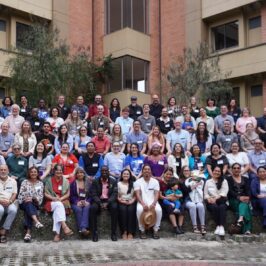
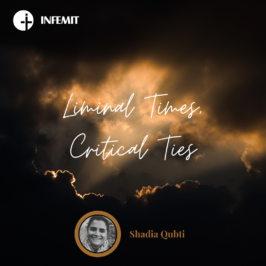
Leave a Reply